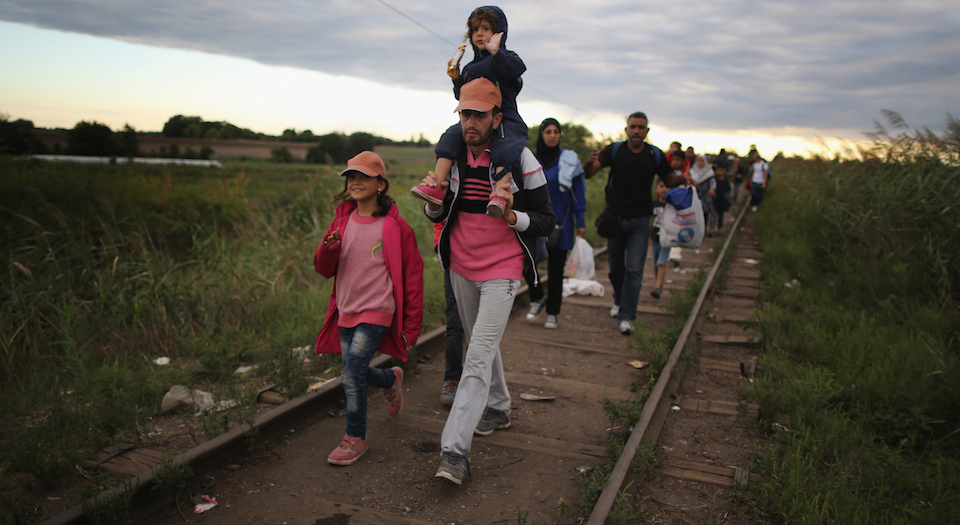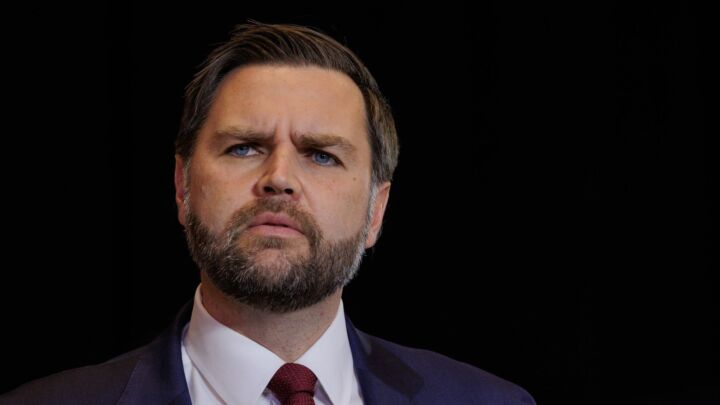The moral bankruptcy of refugee law
The distinction between migrant and refugee is a dangerous illusion.

Want unlimited, ad-free access? Become a spiked supporter.
The man fleeing a wartorn country is a lawful migrant; the man fleeing grinding poverty isn’t. The lesbian fleeing a homophobic state is a lawful migrant; the woman fleeing in search of the medicine that would save her life isn’t. The Muslim fleeing religious persecution is a lawful migrant; the child fleeing environmental disaster isn’t. In each of these examples, the lawful migrant is labelled a refugee, someone for whom the borders of another country are open. Yet for the mere migrant the borders of another country are likely to be firmly shut. Refugees can escape wars, homophobia, religious intolerance or minority oppression, but those who cannot establish refugee status may have to endure poverty, disease, starvation or environmental disaster.
These examples highlight a moral problem thrown up by the asylum system, which treats the cause of someone fleeing a country as the basis for turning them from a mere migrant into a refugee. If a person suffers hardship that can be attributed to the state depriving him or her of a human right, then he or she may attain refugee status. But if a person endures a similar or worse hardship that cannot be attributed to a state, then he or she cannot be a refugee.
This particular absurdity within the asylum system has been illustrated by Edinburgh academic Kieran Oberman, who imagines a health system working on similar lines. Suppose, he says, that ‘instead of treating the sick and injured, it treats only those who are sick or injured for particular reasons. Victims of assault are seen to; those suffering from disease or malnutrition are ignored. Doctors attend to a superficial knife wound, but walk past a man having a stroke.’ This healthcare analogy draws attention to the folly of developing a migration system based on the migrant’s welfare, while at the same time distinguishing between deserving and undeserving migrants, according to the cause of their afflictions. The introduction of this distinction cannot be justified morally.
But there is a more fundamental problem that underpins the notion of a refugee as morally superior to other migrants – those often castigated as ‘economic migrants’. Why is the migrant who seeks a better life morally inferior to the migrant who is denied human rights by the state? At the heart of a morally just migration policy should be a recognition of the positive aspects of humanity, such as people’s ability to exercise free will, their desire to seek out a new and better life, and their intention to contribute to a better society in another part of the world. Whereas asylum policy tends to turn migrants into victims, a morally credible migration policy would celebrate not vulnerability, but the robustness, resourcefulness and resilience of humanity. Morality is enhanced by recognising and incentivising the positive aspects of humanity. It is not enhanced by sneering at the person from abroad who seeks a better life.
As befits a migration policy built on flawed moral foundations, the practice of the asylum system gives rise to further moral problems.
Firstly, the state’s ability to distinguish reliably between a refugee and a mere migrant is often a fiction. How could a state reliably know if a migrant from a foreign state – one that is often in a state of chaos – is genuinely fleeing for his life or whether he is actually seeking a better life? The refugee escaping persecution rarely arrives in a host country with a certificate proving that the state has abused his human rights; this is not how states, benign or odious, operate. It is often impossible for the host authorities to know if the migrant is telling the truth or spinning a well-rehearsed fictitious yarn (often supported with fake documentation).
The asylum system provides a colossal incentive for mere migrants (for whom the border will be shut) to claim they are refugees (for whom the border will be open). Recent examples have shown that if the host authorities say they will give asylum to Syrians, then numerous claimants from the Middle East will claim to be Syrians. Likewise, if the host authorities say they will give asylum to children, then numerous claimants in their twenties will claim to be children. The asylum system means the host state’s ability to distinguish truth from falsehood is highly unreliable.
The unreliability of asylum determinations is a major moral hazard for host states and migrants. The host authorities are supposed to determine an objective truth that will either validate or invalidate the migrant’s claim to superior moral status. This fact-finding process, which is often little more than a lottery, calls the objectivity of the law into question. What’s more, this fickle process is not good for the migrant: if he is telling the truth, he may not be believed and an injustice will result. If his account is a fiction he may still be believed, meaning he and all those who come after him will be encouraged to disrespect both the truth and the law. A law that brings the rule of law into such disrespect is morally objectionable. This fundamental problem stems from the artificiality of making the cause of a person’s desire to migrate central to migration policy. It is a moral hazard that cannot be solved without tearing-up the United Nations’ Refugee Convention.
Secondly, Western politicians proclaim their moral worth by championing their duty towards refugees, while at the same time ensuring the journey to a safe country is perilous. Refugees are in need of asylum whether they are in their own state, at its border or floating on a rickety raft in the sea. They do not suddenly become refugees when they touch the soil of a safe country. So the moral solution would be to send out airplanes and boats to allow these refugees a tolerable passage to a safe country. Yet Western politicians send little transport. In fact, they impose punitive fines on the airlines, road hauliers and individuals that may, even inadvertently, arrive in a safe country with a visa-less refugee.
Moreover, the smugglers, who are the ones who help refugees reach a safe country, are demonised and sometimes prosecuted by the authorities – the same authorities that trumpet their commitment to the asylum system. To return to the healthcare analogy, it would be morally absurd to build hospitals while making it difficult for the sick and injured to reach them. And it would be morally reprehensible to then demonise and criminalise those who provide transport that enables the sick and injured to reach the hospitals they need. Yet this is the discourse of Western politicians who peddle the line of welcoming the refugees who make it to a safe country while at the same time making it so hard for refugees to ever reach safety.
If it is moral to provide a settled home to a refugee, then it can only be moral to provide a settled home to all refugees. Yet, there are millions in the world who are forcibly displaced or suffering as a result of persecution, civil strife or general human-rights violations, and who could qualify as refugees. Yet, only a tiny percentage of them are resettled into safe homes.
In practice, the whole asylum system is a lottery in which those who secure the hallowed refugee status are those with the resources to pay smugglers, and who happen to get lucky both in their journey to a safe state and in the resolution of their asylum application after they arrive. The asylum system simply cannot be justified morally.
Logically there are two alternatives to the asylum system: open borders or state-controlled borders with a democratically determined migration policy. The open-borders argument has the benefit of promoting personal liberty, and of encouraging the positive aspects of humanity. But it is a libertarian ideal that cannot engage with the reality of a world divided between rich and poor, stable and unstable, democratic and authoritarian. If a developed state in the 21st century were to open its borders then it would soon have to backtrack or face social instability, as German chancellor Angela Merkel recently discovered after she opened Germany’s borders to a small section of the world’s population, Syrians. The open-borders ideal – in a world that is far from ideal – challenges the wealth, stability and democracy of the developed world. What’s more, it would not necessarily benefit developing states, which would lose many of their upwardly mobile citizens (as is currently happening to Syria). The open-borders argument lacks moral legitimacy for being utopian.
In any event, the open-borders argument does not profess to be particularly moral. It is a stance that absolves the state from having to make any decisions about who to welcome as a migrant. In the libertarian state, there would be little political discussion about the ‘who’ and ‘why’ of migration policy: the moral issue would be resolved by leaving it to market forces. Just as the libertarian sees little role for political debate about any aspect of public policy, so long as the market economy operates smoothly, so the libertarian sees little role for debate over how the state should control its borders. The libertarian’s ‘morality’ is the very limited morality of the free marketeer.
Defenders of the asylum system share with libertarians a desire to avoid public debate over migration. What the former achieve with laws the latter would seek to achieve through market forces.
So, the only migration system that could be justified morally is one where the state controls its borders and where decisions are made politically about the ‘who’ and ‘why’ of migration policy. Migration policy should be no different from any other public policy: it should be an issue for public debate and hence freed from the straitjacket imposed by national, European and international refugee law.
Supporters of the status quo claim this is impossible, and that the ‘morally virtuous asylum system’ must be ring-fenced from public debate by the Refugee Convention and an assortment of other treaties and laws. But supporters of the status quo fail to confront the moral contradictions of the asylum system. They do not confront it because they fear, without good reason, a democratic verdict on migration. They would prefer a morally fraught migration policy to one determined by the public. That’s undemocratic, but it is also immoral.
Jon Holbrook is a barrister. Follow him on Twitter: @JonHolb
£1 a month for 3 months
You’ve hit your monthly free article limit.
Support spiked and get unlimited access.
Support spiked – £1 a month for 3 months
spiked is funded by readers like you. Only 0.1% of regular readers currently support us. If just 1% did, we could grow our team and step up the fight for free speech and democracy.
Become a spiked supporter and enjoy unlimited, ad-free access, bonus content and exclusive events – while helping to keep independent journalism alive.
———————————————————————————————————————————–
Exclusive January offer: join today for £1 a month for 3 months. Then £5 a month, cancel anytime.
———————————————————————————————————————————–
Monthly support makes the biggest difference. Thank you.










Comments
Want to join the conversation?
Only spiked supporters and patrons, who donate regularly to us, can comment on our articles.